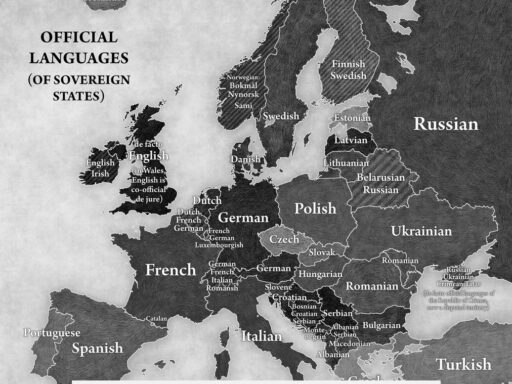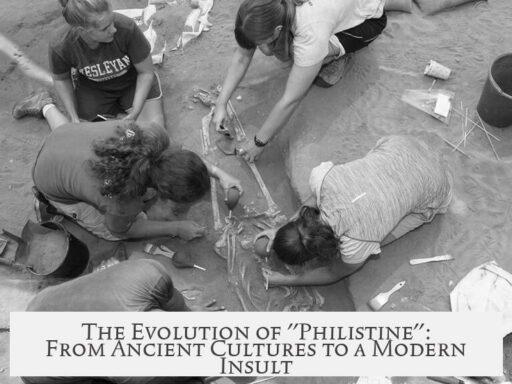Joan of Arc’s execution in 1431 was met with approval in England, reflecting its role in promoting English authority during the Hundred Years’ War. However, by the time she was declared a martyr in 1456, English reaction was largely indifferent due to shifting political realities.
In 1431, Joan of Arc’s trial and execution served as a political tool for England. English authorities, led by figures like Henry VI and the Duke of Bedford, framed her as a heretic whose myth needed to be discredited to legitimize English claims in France. Henry VI communicated with French church leaders, urging them to denounce Joan’s influence publicly. He emphasized the danger her “errors and dangerous superstitions” posed to Christian faith, aiming to undermine her symbolic power.
Despite Joan’s morale-boosting effect on the French, the English viewed her execution as a necessary political act. Bedford highlighted the importance of quashing Joan’s impact to maintain English dominance, though his emphasis also served to justify requests for more military resources.
Politically, Joan’s death had limited practical impact on the war’s outcome. Larger concerns such as securing international alliances, maintaining funding, and managing supplies outweighed any single event like the execution of a symbolic figure.
By 1456, when Joan was declared a martyr and her conviction nullified, English land holdings in France had drastically declined. The loss at the Battle of Castillon in 1453 ended major English ambitions on the continent except for Calais. England’s focus had shifted inward toward the Wars of the Roses. Because of this, English authorities showed little interest or response to the nullification verdict, viewing it as an ecclesiastical matter of minor importance.
The French, cautious about stirring popular veneration of Joan after the verdict, limited its publicity. The English disengagement reflected both their diminished presence in France and the changed political priorities at home.
- In 1431, England welcomed Joan’s execution as a tool to weaken French morale and legitimize English claims.
- Official English communications framed Joan’s influence as dangerous falsehood undermining Christian faith.
- Joan’s death had symbolic but limited practical military impact amid larger strategic concerns.
- By 1456, England largely ignored Joan’s rehabilitation due to lost French territories and focus on domestic conflict.
- The nullification verdict was kept low-key in France, reflecting cautious political and religious considerations.
Joan of Arc Was Burned at the Stake in 1431 and Declared a Martyr in 1456: How Was This Received in England, and What Was the Political Context?

Joan of Arc’s execution was welcomed in England in 1431, but her posthumous rehabilitation in 1456 barely registered there. Back then, England was knee-deep in war and politics, and Joan’s fiery death served their immediate purposes more than any long-term reflection. Let’s unpack how the English saw Joan’s end and later vindication, all while volleying political chess moves across the Channel.
First off, Joan of Arc was no ordinary figure during the Hundred Years’ War. She had become a rallying symbol for the French cause, inspiring troops and disturbing the English campaign. When she was captured and put on trial by an English-backed ecclesiastical court, the English powers had a clear goal. They viewed Joan as a dangerous heretic and pretender, and removing her wasn’t just about neutralizing a military threat—it was about discrediting the French rebellion she ignited.
So, what was the English reception like? Pretty enthusiastic. The English saw the trial and execution as a *win*, both militarily and symbolically. The trial was carefully orchestrated to brand Joan as a heretic, which justified her execution. King Henry VI himself took part in the propaganda effort. On June 28, 1431, he penned a letter to French prelates, urging them to shout from the rooftops that Joan’s deeds were deceitful and dangerous. Henry VI wanted to stamp out any lingering support for Joan’s legacy by bolstering the narrative that she was a false prophet who led many astray.
This use of Joan’s death as propaganda reveals how much the English understood the power of public opinion. Joan’s trial was less about justice and more about reassuring the English populace and demoralizing the French. But here’s the kicker: while symbolically massive, Joan’s execution wasn’t a game-changer on the battlefield. Compared to the importance of alliances, funding, and military supply lines, her death was a small ripple, not a tidal wave.
Still, the English weren’t just waving victory flags blindly. The Duke of Bedford, the English commander in France, acknowledged Joan’s impact on morale. He used her threat as leverage to request more resources and reinforcements. It’s classic political theater—make the threat seem bigger than it is to get what you want. So yes, Joan was a thorn in England’s side psychologically, even if militarily she didn’t decide the war singlehandedly.
Fast Forward to 1456: The Nullification Trial and English Indifference
Jump ahead 25 years, after Joan was officially declared a martyr and innocent by a church court in 1456. You’d think the English would care a bit more, right? Nope. England had pretty much switched gears by then, and Joan’s exoneration went largely unnoticed there. By 1456, England had suffered a massive blow—their holdings in France were nearly wiped out after the crushing defeat at Castillon in 1453. All they had left was a tiny grip around Calais.
Also, England had its own drama to handle: the Wars of the Roses had begun brewing. The English crown was embroiled in bitter civil conflicts over who should sit on the throne. In such chaos, a French ecclesiastical decision clearing Joan’s name was about as relevant as a weather forecast in the Sahara.
On top of that, the French themselves were cautious. Although the nullification trial happened in Rouen and technically cleared Joan, the results were not heavily publicized in France either. They didn’t want a cult of Joan forming too quickly, no matter how much they loved their Maid by then. It was a delicate political move during a sensitive truce.
Putting It All Together: The Political Context
The English reception to Joan of Arc’s trial and execution mirrors the political currents of early 15th-century Europe. The English government saw her as a legitimate threat to their claims in France and exploited her death to strengthen morale at home and weaken the French resistance. Joan’s execution symbolized an attempt to silence French hopes for independence and assert English hegemony.
Yet, underneath the grand stage plays and propaganda, England’s priorities were pragmatic and shifting rapidly. Military campaigns required funding, alliances mattered more than symbolic victories, and morale was fleeting. By the mid-1450s, the loss of French territories and internal strife meant England had bigger fires to fight than worrying about Joan’s posthumous reputation.
What does this tell us about how politics shapes history’s heroes and villains? Joan was a hero to France and a heretic to England. Her death helped England momentarily, but history almost rewrote itself later—though England was too busy fighting itself to notice. It’s a reminder that political interests often dictate who gets remembered, who is erased, and who becomes legend.
So, if you’re pondering how Joan of Arc’s fate echoed through England—she was a thorn, then forgotten. England’s view was practical: *Does Joan help or hurt us now?* In 1431, she hurt a lot. In 1456, she was just another name as England faced its own troubles.
Joan of Arc’s story reveals how political context and shifting priorities shape public memory, propaganda, and the legacy of even the most iconic figures in history.
| Year | Event | English Reception | Political Context |
|---|---|---|---|
| 1431 | Joan’s Trial & Execution | Happy, used as propaganda; Joan labeled heretic | Hundred Years’ War, need to demoralize France, boost own morale |
| 1456 | Nullification Trial Declares Joan a Martyr | Indifference, no public reaction | Loss of French territories, focus on Wars of the Roses |
Ultimately, Joan of Arc’s legacy is a vivid case study in how political agendas overshadow iconic figures—one part inspirational legend, one part tactical pawn on a brutal chessboard. How much do you think modern political narratives shape our heroes and villains today? History may not repeat, but it sure likes to rhyme.




